"...the wit of the city's urchins is as sharp as the finest conversation of the rural lord; the vulgar speech of the street arabs is so full of metaphor and condensed reference that an ancient poet would have given his soul to possess the tongue of a London apprentice; yet it is a speech almost impossible to translate, more mysterious than Sanskrit, and its fashions change from day to day..."
LONDON CALLING is the first of The Clash's albums that is truly equal in stature to their legend, yet for the most part it disposes of the more indigestible portions of that legend. Parts of it sound totally unlike anything they have ever recorded before, yet it is the most quintessentially Clashlike Clash record thus far. Much of the material on these four sides represents The Clash writing, singing and playing for their lives, yet simultaneously much of it shows them writing, singing and playing purely for fun.
Clashrock as of now (or as of London Calling) has a freshness, variety, vitality and range that they've never shown before (though aspects of it were signposted as long ago as 'Stay Free', 'White Man In Hammersmith Palais', 'Julie's Been Working For The Drugs Squad' and the Cost Of Living EP) while simultaneously drawing from musical roots scarcely apparent back in the days of White Riot.
London Calling is also ? no small point, this ? the first Clash record (with the possible e'ception of Cost Of Living) that actually sounds right. Guy Stevens has produced The Clash the way they should have been produced right from the start: the tinny Winfield-wall-of-sound of the first album now sounds quaint and one-dimensional by comparison and the AOR (Adult Oriented Rock, that is easy-listening HM sound imposed on 'Give 'Em Enough Rope' by the appalling Sandy Pearlman is now e'posed as an even more gargantuan error of taste and judgement than it seemed at the time.
The business: London Calling is an 18-track (19 if you count the bonus track which appears at the end unmentioned on either sleeve of label) double album of new Clash music retailing for a fiver, and if you buy it sharpish at a Virgin shop you can take it home for three quid. It's good, it's cheap and there's a lot of it: I call that a bargain, one of the best I ever had. With London Calling, The Clash have matched everybody else's bets and chucked their cards on the table: in Springsteen's words, they've shown a hand even the police couldn't beat, and they deserve to clean up.
They've even been honest enough to e'pose their three greatest faults on three specific tracks: The e'cruciatingly condescending and self-conscious 'Lovers Rock' demonstrates that they're a hell of a lot better at discussing the relationship between man and society than they are at dealing with the relationship between woman and man. This is a chronic imbalance in the Clash worldview, and the day that they resolve this contradiction is the day that Strummer and Jones (my money's on the latter) will write one hell of a good song.
'Four Horsemen' is the kind of stylish-radical-boys-together self-mythologising which they decry on 'Death Or Glory' and which should have been dumped back in the days of 'Last Gang in Town' or left to Generation ' who, after all, have precious little else to sing about.
The third and final bone of contention is 'Guns Of Bri'ton', Paul Simonon's debut as composer and vocalist. Musically impeccable, it's one of The Clash's most tense and stirring reggae pieces (The Clash have always picked up on the tautness and militancy of reggae, whereas The Police's reductions of reggae have always concentrated on its spaciness, which is ? after all ? far more saleable as it's less challenging), but we don't need another paean to martydom; we've already had enough martyrs.
Lyrically, those three tracks represent the worst of The Clash: male-bonding (with women either not mentioned or taken for granted), militarism along with the militancy and a martyrdom fi'ation. Everywhere else (now we've got those three out of the way), The Clash come up trumps.
* The album opens with the single: a straight line drawn between the apocalypse of Bowie's 'Diamond Dogs' and the testament to personal courage and integrity of Springsteen's 'Darkness At The Edge Of Town'. A call for solidarity and trust in the face of impending disaster, 'London Calling' is a tuning-fork that strikes the keynote for the album, a tone apparent even in the most light-hearted moments of what is to follow.
Even before Mick Jones' pickup-selector morse-code bleep has died away, The Clash drrrriiiiive straight into Vince Taylor's 'Brand New Cadillac'; rockability-tinged R&B of the hard kind that recalls The Yardbirds' epic 'Train Kept A-Rollin'' with even a tiny nod to Cream's 'Crossroad' at the beginning of the guitar solo. The Clash's sympathies are ?for once ? clearly with the departing girlfriend: check Strummer's scornful roar of "Balls to you, big daddy! She ain't NEVER coming back!"
Ne't up, The Clash take over Tom Waits' favourite bar for 'Jimmy Jazz', a lazy, alcoholic shuffle with dirty, goosegrease sa'ophone. There's brass aplenty on 'London Calling', attributed to "The Irish Horns"; if it ain't John Earle and the Rumour brass, I apologise. A slurring Strummer e'claims "What a relief!" over the sa' solo and misdirects the police who come looking for Jimmy Jazz himself.
An Inter-City paced Bo Diddley beat leads into 'Hateful', a sharp look at drug consumption patterns with the smooth humming guitar sound Mick Jones featured most notably on 'I Fought The Law'. Anything I want he gives it to me/ Anything I want he gives it but not for free," Joe points out while sardonically and ruefully chronicling his mental and spiritual decline.
Mick Jones' 'Rudi Can't Fail', one of the highpoints of a fairly highpoint album, rounds off the first side. Rudi has clearly gotten his bottle back since Strummer first evoked him during the retreat-fade back to their 'Safe European Home' on the last album, and Strummer eggs Jones on to a marvelously spirited vocal over a whooping ska e'ercise that's the equal of anything on The Specials' album. "How you get a rude and a reckless/Don't you be so crude and a feckless/You been drinking brew for breakfast/RUDI CAN'T FAIL!" crows Jones, effortlessly evoking a pride and militancy that has nothing to do with aggro and bullying. A message to you, Rudi!
'Spanish Bombs', which opens the second side, is perhaps the most brilliantly uncharacteristic piece on the album. Jones' buzzing lead and Beatley chords are ju'taposed over a lush carpet of acoustic guitars and a hustling Headon backbeat. A marvellously ambiguous look at the Spanish Civil War with a chorus in the lovers' tongue(ha!), switching back and forth from the Spanish war to contemporary Spain and Ireland, it's counterpointed with the sinister line "I'm flying in on a DC-10 tonight". Strummer sings the song beautifully, with Jones' higher smoother voice alternating octaves, harmonies and parts of the lead with marvellous sureness. This is as good a place as any to point out that this album is virtually Strummer's debut as a singer; he was still barking like a seal on the first album, and on the second Pearlman buried his voice on the grounds that he bore an insufficiently strong resemblance to Steve Tyler to sell in the States.
'The Right Profile' has Joe sounding drunk again (when he slurs like that he bears an unnerving vocal similarity to Ian Hunter ? what did you do to him, Guy). A rollicking, roistering tribute to Montgomery Clift, Stevens psyched Strummer into writing it by some unholy means of his own. Pointed, rocking Big Fun.
Mick Jones pops up again for 'Lost In The Supermarket', another high in subtlety. Jones adopts the personality of the bewildered conditioned citizen vaguely aware of the fact that there's something missing from his life with commendable compassion and lack of condescension. Simonon cops a classic disco bass lick and Jones' still small voice evinces a genuine pathos, especially when Strummer enters with a gruff counterpoint towards the end.
'Working For The Clampdown' is old-style Clash: strictly militant with a ridiculously martial Mick Jones guitar bugle-blast, and the previously discussed 'Guns Of Bri'ton' rounds off the side.
* The second half gets a rousing curtain-raiser with 'Wrong 'Em Boyo', the Stag-O-Lee saga blaring out in true roadhouse style before Strummer halts the proceedings at the end of the first verse to translate the legend into tense, jumping ska. Another message to Rudi: to live outside the law in Clash terms means being twice as honest as those who live within it, and it also means taking the consequences. They ram the point home on another of the album's crucial tracks, 'Death Or Glory'; outlaw posturing is meaningless unless it's backed up with real integrity. "Death or Glory is just another story." They comment hilariously and ruefully on their own odyssey: "And every gimmick-hungry yob digging gold from rock and roll/Grabs the mike to tell us he'll die before he's sold/But I believe in this ? and it's been tested by research/That he who fucks nuns will later join the church."
Suiting the action to the word, Strummer leads us straight to a Manhattan skyscraper ? not CBS', of course ? "Elevator going up!" to show us the hip e'ecs being hip and e'ecutive. "Your snakeskin suit and your alligator boot/You won't need a laundrette, you can send them to the vet!" he sings on 'Koka Kola'.
The side winds up with Guy Stevens making a Phil Spector record with The Clash that Spector himself is going to have to go some to beat with The Ramones. 'The Card Cheat' shows The Clash giving serious consideration to the possibility of loss and defeat and eerily echoing the melodic motif of 'Rudi Can't Fail', a point not easily missed. Jones plays piano (Strummer is credited with 'pianner' elsewhere, another vital distinction).
As well as the previously discussed 'Lovers' Rock' and 'Four Horsemen', the final side stars Mick Jones:
Once: giving defeat the finger on 'I'm Not Down', in which he acknowledges failure and error in the past and maybe even in the future, but declares his intention to win the war despite losing a few battles. "I've been beat up, I've been thrown out, but I'm not down, I'M NOT DOWN/I've been shown up, but I've grown up, I'm not down, I'M NOT DOWN."
Twice: the 'secret' track 'Train In Vain' was originally intended for an NME/Clash fle'idisc giveaway project, but there were e'tensive technical and logistical problems, so it shows up here instead and it sounds better than it ever could on a fle'i, so who's complaining 'Train In Vain' is a bit of '79 UK soul that any of the mod bands would have been proud to call their own.
Strummer's sign-off comes on another Rudi riot: 'Revolution Rock' is one of the numbers on this album that The Clash didn't write ('Brand New Cadillac' and 'Wrong 'Em Boyo' being the others), but The Clash turn everything then play into a Clash song: what could be a more perfect Clash song than 'I Fought The Law', for e'ample
* A guided tour through London Calling, therefore. But it's no substitute for hearing it, which you should. The Clash have been criticised for becoming "a straight-ahead rock and roll band", which is specious in the e'treme. The Clash love rock and roll, which is why they play it, but they want it to live up to its promises, which is why they play it the way they do. With groups like The Clash on the case, rock and roll ain't in the cultural dumper: London Calling makes up for all the bad rock and roll played over the last decade.
It also puts a lot of people on the spot. Correct me if I'm wrong but in terms of value-for-money, The Clash have responded to the general lack of ackers by giving you more for your money while everybody else is wracking their brains trying to think of cutesy ways to get away with giving you less. Now The Clash have done it: who's ne't
I've been listening to London Calling for nearly two weeks now: it's been the most played album on the premises all that time and will no doubt fulfil this function for some time to come. All of The Clash, organist Mickey Gallagher on loan from The Blockheads, engineer Bill Price and uncle Guy Stevens and all, are entitled to feel very, very proud of what they've done here.
London Calling: damn right. Now everybody here from Birmingham England to Birmingham Alabama, call 'em back. This is the one.
© Charles Shaar Murray, 1979
Guy Stevens: ?There Are Only Two Phil Spectors In The World And I Am One Of Them?
Selected tableaux from The Guy Stevens Story.
"They rushed down the Street together, digging everything in the early way they had, which later became so much sadder and perceptive and blank. But then they danced down the street like dingledodies, and I shambled after as I've been doing all my life after people who interest me, because the only people for me are the mad ones, the ones who are mad to live, mad to talk, mad to be saved, desirous of everything at the same time, the ones who never yawn or say a commonplace thing, but burn, burn, burn like fabulous yellow roman candles exploding like spiders across the stars and in the middle you see the blue centrelight pop and everybody goes 'Awwwwwww!'..."
? Jack Kerouac, On The Road
"He's in love with rock and roll, WOOAAHHH! He's in love with getting stoned, WOOOAAAHHH!" ? The Clash, 'Janie Jones'
"With Guy Stevens it was very, very special, because if it hadn't been for him seeing that glimmer of whatever that I certainly wasn't aware of, I'd still be workin' in the factory right now."
? Ian Hunter
"Guy Stevens Forget him. He's had it."
? A Music Industry Figure
TAKE A DEEP breath and you could recount the Guy Stevens story in one sentence.
Kingpin mod deejay at the Scene Club in '64, Our Man In London for Sue Records, the legendary soul label, first house producer for Island Records where he signed and produced Free and Spooky Tooth as well as inventing Mott The Hoople, discoverer of The Clash after a long time in hibernation and now finally producer of their new album London Calling. The man who got Chuck Berry out of jail in 1964, the man who supplied The Who with the compilation tape that gave them most of their early pre-original material repertoire, the man who introduced Keith Reid to Procol Harum and generated 'Whiter Shade Of Pale' only to fail to get them signed up and then had to stand by and watch them sell 90,000,000 copies for someone else, the man who smashed up every piece of furniture in a recording studio to get the performance he wanted out of the group he was recording, the man who Mick Jones of The Clash still thinks is responsible for getting him fired from his first real band, the man who heard Phil Spector rant about how it was him, Phil Spector, who first discovered The Beatles, the man who...
Guy Stevens, with the rolling, popping, bulging eyes of a veteran form speedfreak, the boozer's lurch and slur, smashing through or falling over every obstacle between him and the perfect rock and roll record, the ultimate rock and roll record, the final rock and roll record, the next rock and roll record...be that obstacle, human or inanimate, himself or something else. Staggering, screaming, crying, flailing, laughing, Guy Stevens arouses pity, terror, admiration, revulsion, contempt.
In 1971 they wrote him off as a hopeless loser, a man too far gone into the depths of alcoholics' perdition to be of any use to himself or anyone else again.
And now, in the closing weeks of 1979, Guy Stevens is back in the charts. It is' as they say' a mighty long way down rock and roll. The inevitable corollary is that it's an even longer way back up again. Guy Stevens has been to hell and back.
"WHAT HAPPENED was I was living in a one-room no-water flat in Leicester Square and playing records for Ronan O'Rahilly' later of Radio Caroline' down at the Scene Club. I had an R&B night every Monday and a lot of people like the Stones and Animals used to come down..."
Guy Stevens is ensconced in a taxi heading for a friend's flat, where our interview is scheduled to take place. He had arrived at the NME offices half an hour late and roaring drunk, his hand lacerated and bleeding following some sort of incident with a glass door. Apparently, the prospect of being interviewed' at once exhilarating and terrifying' had sent him down to the pub as soon as it opened. He is 15 years away in time, back when Mod really was mod, back when Guy Stevens had a direct line to R&B central.
"I got all my records mail-order. You sent 'em the money and got the records back within seven days from Stan's Records Store in Shreveport, Louisiana, USA and it's right down deep in Tennessee..."
Wait a second, Guy. How can it be in Tennessee if it's in Lousiana "Well, it's somewhere around there. It all started for me when I was 11 years old and the first record I ever heard was 'Whole Lotta Shakin' Goin' On' by Jerry Lee Lewis and that was the end of my school career. What I did was to start this thing at school where every boy in the school had to pay me a shilling a week' that's 5p' to be a member of my rock and roll club, and I chose the records. We had 'Peggy Sue', 'That'll Be The Day', Larry Williams' 'Bony Maronie', all the hits of the time, Jerry Lee Lewis' 'Great Balls Of Fire'...and I got expelled for it eventually.
"So I was expelled at 14, and I went to work for Lloyds, the insurance brokers. They thought I was kinda funny. By '63 I had all these records that I'd imported from Stan's Record Store in Shreveport Louisiana, right...And Peter Meaden came round one night. He was the bloke who formed The Who, and he arranged to bring them round one day with their manager, Kit Lambert.
"And they were really weird. They just stood there. My wife, who I was then living with' we're separated now' made a cup of tea for each one of them and they still stood still. I played 'em 'Rumble' by Link Wray and put it on a tape for them' because by then I'd built up this enormous collection and Steve Marriott and everybody used to come round to get material.
"So The Who were there with Kit Lambert, and he offered me a fiver to make a two-and-a-half-hour tape for them, because Townshend hadn't started writing and they had no material to play on stage. So I played 'em all James Brown stuff, 'Pleeeeeeeeeease Pleeeaaase Pleeease'..." Hair flying, right there in the cab, Stevens becomes James Brown. "And I played 'em 'Rumble' by Link Wray, which was the classic Pete Townshend record, which he'd never heard before."
Stevens' mouth begins to emit gigantic, grinding guitar chords and odd flecks of spittle. Demonic possession by a guitar.
"So Townshend, Daltrey, Entwistle and Moon sat there for three hours drinking tea looking like little schoolboys and my poor wife was going, 'Would you like another cup of tea' and they're saying, 'Uh...well...um...ah...dunno,' and I'm playing the records going, 'Jesus Christ! WAKE UP" I was going through my cabinet where I had all my singles, I had every Motown single, every Stax...I went to Stax in Memphis in 1963 and they said, 'It's just a record shop'. I said no, no, you've got a studio and they say, 'We're just a record shop'. So I went behind the shop and there was the studio where Booker T made 'Green Onions'. The whole lot, Rufus Thomas...and it was the size of this taxi we're sitting in now."
One visualises a younger Stevens, mod suit, hair cropped short, ranting and screaming at the bemused counter assistant at Stax, or a young, shy Who clutching cooling teacups while this maniac jumps up and down, hitting them with soul music and screaming .
"And at Stax I said to them in 1963, 'Don't you understand the importance of what you're doing' I can't tell you enough...they were nuts! They thought the record shop was more important than the studio!"
The whole industry thinks shops are more important than studios, though.
"Well, if they think filing cabinets are gonna sell records, then they'd better start selling them now. Records sell because they are made by dedicated people who love to sing and love to play, and that's what it's about. The record companies are full of people who are either secretaries, hangers-on or people who don't know anything about music all thinking, 'Well, it's better than working in a bank'."
FROM DEEJAYING, scenemaking and propagandising blues, soul and rock and roll, Stevens moved to operating Sue Records as part of the then fledgling Island label. From living off what he made from selling Scene Club tickets at Piccadilly Circus tube station, he graduated to a £15 a week salary from Island. From label administration to production was only one band away.
"What happened was that these guys came down from Carlisle in a van in '65. They were called The V.I.P.'s, later to be known as Spooky Tooth, and they were all nutters, all complete maniacs, and they ambushed Island Records at the same time as I did. I was always at total war with Chris Blackwell (then' as now' Island's headman) and...I can't put him down in a nice way, really. He was always a millionaire dilettante: he had a million anyway so he didn't need to bother, bu
t I never knew this. I had just started the Sue label, and I got Charlie & Inez Foxx, I got James Brown, I got a hell of a lot. "Sue was formed by a guy called Juggy Murray in New York, and he started the label with Charlie & lnez Foxx's 'Mockingbird'; that was Sue 301. I went over to get a record called 'The Love Of My Man', which nobody has covered, and I hope Elkie Brooks isn't listening. 'The Love Of My Man' by Viola Kilgore. Unbelievable. Un-be-lievable. Blitzkrieg, out the window, number one, easy. He owned the copyright. Chris went over and offered him $500. Juggy wanted half a million. It got to three in the American charts; if you check back you'll find it. One of the greatest records I've ever heard in my life.
"I wanted it to be on Sue. The main thing was that I wanted everything good to be on Sue. I wanted Bob Dylan to be on Sue. That was why I started importing records for Island with David Betteridge (now a CBS high-up) and Chris. And it nearly bankrupted Island."
BY NOW we're established in a luxurious flat belonging to a friend of Guy's. We're drinking coffee and brandy, except that Kosmo Vinyl' acting as Guy's part-time minder on behalf of The Clash' is surreptitiously filching Guy's brandy glass every time it's refilled and drinking it himself. Guy doesn't appear to notice, since every so often he is allowed to take a sip.
We're in '67 now, discussing the first Traffic album Dear Mr Fantasy, the getting-it-together-in-a-cottage-in-the-country one with the ghost on the cover. "I did that cover! I went down to the cottage in Berkshire with them, I did the cover, I did everything! It sounds terrible to say all this...maybe I should say nothing. What do you want me to say"
"Tell 'im the facts, Guy," interjects Kosmo from across the room. "Steve Winwood asked me to come down, said 'I want you to produce Traffic and live with us'. So I went down there and it was a bit fairytale, a bit weird. There were some very weird things going on. They were smoking a hell of a lot, and each one would come out and say to me, 'Oh God, I can't go on with life' and all this. That was Jim Capaldi. Then Steve Winwood would come out with, 'I can't cope! It's all gone too far! It's all too much! We've had a hit single! Oh God!' And then Chris Wood started going, 'Oh God! I've had enough!'
"I said, 'Hang on, I've just heard this from three people! What is this Have you all learned it off parrot fashion or what' I was down there with all my belongings, all my records and everything thinking 'Jesus Christ, they're all going mad!' And what they were all going mad over was Steve's girlfriend, but th
at's definitely another story... "But the worst thing that happened between me and Blackwell was the 'Whiter Shade Of Pale' incident. He had it on his desk for a week! What happened was this boy I knew called Keith Reid came into the office with these words he'd written. He worked in a solicitors' office for £4.50 a week, and he brought in these words which were vaguely Dylanish, and I told him the words were great and suggested that he got himself to a good songwriter."
Reid ended up with Gary Brooker and Procol Harum. Chris Blackwell turned the result down, and when it was finally issued elsewhere, it made number one in two weeks flat, became one of the biggest records of '67 and still sells astronomical quantities whenever it's reissued. Guy Stevens had a nervous breakdown.
At the same time, Guy's massive record collection was stolen from his mother's house in 1967, and' to add insult to injury' the thief sold them all off for ninepence each (that's old money. In comtemporary currency that would be 3.75p each. Weep!).
"The guy didn't know what he was selling. I had every Miracles record. Every Muddy Waters record. I had every Chess record from 001. Listen! I was at a session with Phil Chess in 1964 with Chuck Berry when he was doing 'Promised Land' and 'Nadine'. I was at the session! I was taking photographs! I got Chuck Berry out of prison! I put tremendous pressure on Pye Records, who had Chess and Checker over here, and the head of the company at the time was Ian Ralfini.
"I put pressure on him to get 'Memphis Tennessee' released as a single. It was out as a B-side, with 'Let It Rock'. They taped all the Chuck Berry tracks off my records! Not from master tapes but from my records! I mean, I may have spat on them or something. You never know what happens, do you Now you'll know that if your old Chuck Berry records jump or something, it's probably me spitting on them.
"The first thing I actually produced was with Spooky Tooth. It was called 'In A Dream' and it built up. All my records build up. Have you noticed that Now, what I've done with the new Clash album is I've made 'em actually play a bit. I hope that's no offence to anyone...they haven't turned into Andy Williams or anything. Actually, I could do a really good Andy Williams. You wanna hear an Andy Williams impression"
Guy lurches to his feet, something like a slow-motion film of somebody falling over projected in reverse. He approaches the white piano in the corner of the room, punches out a horribly discordant introduction to 'Moon River', saunters to the centre of the room and collapses into a paroxysm of mock sobbing. He chokes out an anguished monologue about Claudine Longet and the death of the ski instructor and then returns cautiously to the sofa.
"That's it. Ask me another question. Now the thing is that these blokes' Spooky Tooth' came down from Carlisle in a van, and they were incredibly heavy, both physically and because they were all taking about 500 blues a week. I loved them. I thought they were incredible and I took Blackwell along to see them. Spooky Two was the album. The mixing on that was incredible: that was my engineer Andy Johns. I don't know what happened to him. He's still alive, but he's in America.
"Andy' if you're listening' please come home." Stevens lurches closer to the cassette microphone and raises his voice. "You can work with anyone here at anytime, but"' confidentially now' "don't get messed up like you did before."
AND THEN came Mott The Hoople, and that story starts "in Wormwood Scrubs. I was doing eight months for possession of drugs and I read this book called Mott The Hoople by Willard Manus. I wrote to my wife and said, 'Keep the title secret'. She was my ex-wife, or separated wife, I don't know what they call them, and she wrote back, 'Are you joking Mott The Hoople That's ridiculous!' Anyway, when I came out of prison Island re-employed me at £20 a week' I went up a fiver' and I've got to admit that Mr Betteridge came and picked me up from the gates of Wormwood Scrubs.
"And then I wanted to have a pee, and he said. 'Fuck that, have a pee if you want one, but I'll be two miles down the road'. I said, 'Wait a minute I just got out of prison! Show some sensitivity, for fuck's sake! I don't even know what roads look like anymore.' So I went for a pee and he drove off, and then finally he said, 'Oh, I didn't know you were following us'. I only found them because my wife was waving her arms out of the window and yelling..."
Memories cascade out of Stevens, virtually unchecked. He is obviously pissed and ranting, but there is something eerie about his conversation: he appears more medium than raconteur. His voice undergoes startling changes; one moment almost precise, the next moment so alien that it seems as if he is maintaining his grip on the art of speech only by a conscious effort. He recalls Janis Joplin telling him at the Albert Hall that she was going to overdose within a year. "She was the kind of girl who would walk into a bar and just take over the whole bar. She'd walk up and...'Awwwwwl raht. A-whoooooo's gonna bah me a drank A-whooooooo's gonna bah me 'nother drank Whooo's gonna bah me 'nother double drank'
"Janis Joplin I loved. I loved her music and since her death I've felt funny and tortured about it. If I'd tried... when I get really sad I cry at home and play that second track off I Got Dem Ol' Kozmic Blues Again Mama."
He also remembers a pre-Yardbirds Eric Clapton, dragged up to Guy's den and finding Freddie King albums blaring out at him while Guy banged a hammer on the floor and screamed "Play, Eric! Play" while the young fellow tried to hide in a corner.
He moves on to chaotic Mott The Hoople sessions where studios were reduced to rubble.
"I never hit a microphone. Everything else I destroyed. Why ANGER! I'm just a very angry person. When a group's been sitting there for two weeks without getting anything done, you've got to...lemme tell you about Hunter. The first time...I love the fact that he came from a wife and three kids in Archway' changing buses twice' to get to what he thought was some dodgy demo session. He didn't know what it was going to be. The guy at Regent Sound just told him that there was some bloke rambling on about Jerry Lee Lewis and Bob Dylan.
"Ian had a cold and a headache, but he came down and he played 'Like A Rolling Stone' and I stopped him and said, 'That's it. You're hired. Come by the office tomorrow and pick up your fifteen quid with the rest of the band'. He asked what the band was called and I told him Mott The Hoople. He went, 'Whaaaaat Mott The What'
"He came in the next morning and got his fifteen quid, and then he finally believed. I'd organised everything, set it all up. There was no embarrassment. The only thing I'd like to say on my behalf is that I think David Bowie scored most of the credit rather than me. I'd chosen the name, found the band' because they had to be right, I'd auditioned over 70 bands in a year.
"I knew they had to be right, have the right attitude. Then I saw these blokes lugging an organ up the stairs, and they were really lugging this fucking great organ up the stairs. It was enormous, a Hammond C3 the size of a piano, and I thought, 'I don't care what they sound like. They've done it. They got the organ up the stairs'.
"What happened was that I made five great albums for Island with Mott and luckily David Bowie picked up on them. That was great, I was really pleased. He saved their lives.
"The actual incident that happened...you know 'Ballad Of Mott The Hoople' Well, they disbanded in Zurich, they just said, 'Well, see ya when we get off the train'. Bowie had heard about this, and he'd based most of his rock thing on Mott, all his rock artistry and all his rock vision. I think if he'd been Ian Hunter, he'd have loved it.
"The real trouble with Ian, though, is that he takes himself so seriously. He takes himself much too seriously."
Today, Guy Stevens says, "I never really recovered from Mott The Hoople." Ask him about the period between Brain Capers (his last Mott album) and London Calling and his reply is simply, "You're asking about a very mixed-up period of my life."
He refocuses. "I never really got over working with Ian Hunter. You've got to realise that...I think Chrysalis Records are doing a great job, signing him up and...the trouble with Ian is really...
"
HE-E-ELLLLP!" A comic wail of distress masks the real one effectively enough for the conversation not to be derailed. "Listen, The Clash are really great to work with. I found 'em in '76. I produced demos of the first album, 'White Riot' an' all that. This character called Bernie Rhodes who owned a garage in Camden Town and happened to live opposite where they rehearsed...I was living near there at the time and I wandered in. They were doing 'White Riot'."
He launches into his own impromptu performance of the song, spittle flying, hair bouncing, eyes bulging. "'WHITE RIOT! I WANNA RIOT! WHITE RIOT! A RIOT OF MY OWWWWWWN' And I just thought 'Right! RIOT! RIGHT! RIOT! Let's goooooooh!'
"And then Bernard got very tricky."
The conversation then saunters into the minefield of The Clash's financial history, a topic over which a discreet veil should be drawn. Suffice it to say that anyone thinking that The Clash's popularity and influence has created a proportionate bulge in their bank accounts is suffering from severe delusions. If anyone's "turning rebellion into money", it certainly ain't The Clash.
WHICH IS WHY we find The Clash in a room in a West London office building winding down after a business meeting. The previous day the 'London Calling' video had been shot in the Battersea drizzle, and an evening's rehearsals have just had to be cancelled because their equipment is still waterlogged and as such unfit for immediate use.
Their single is out and warmly received. Everyone who's heard the album thus far thinks it's marvellous, so everyone's telling their Guy Stevens stories.
Joe Strummer looks like a Ted on his way from a building site to an oldies shop hot on the trail of Jerry Lee Lewis outtakes. Paul Simonon looks like The King Of All The Rudies. Topper Headon looks like a punk rockaaaahhh. Mick Jones looks like Al Pacino in The Godfather.
"I well remember searching through all the pubs in Oxford Street looking for him," Strummer recalls. "I found a row of blokes sitting slumped over the bar staring in their beer. I looked down this row and I spotted him because of his woolly hat. I went up to him and tapped him on the shoulder, he looked round and it was like son-finding-father in one of those corny films. He looked up at me and said, 'Have a drink'.
"He had a few rucks during the sessions," Mick Jones chips in. "He had one with Mister Oberstein (Maurice Oberstein, big boss man at CBS) where he lay in front of Mister Oberstein's Rolls Royce. He had fights with Bill (Price, engineer of That Ilk)...why'd he have a fight with you" he calls over to roadie Baker Glare.
"He threw something of mine across the room," elucidates Baker.
"We highly recommend him to anybody who wants to make a record," announces Strummer.
"There was this big pile of chairs," reminisces Jones, "all stacked up on top of each other like at school and he rushed out during a take and grabbed for the top chair and they all started to come over, so he pushed them back, then went for the top one, pulled it down and smaaaassssshh! Then he says, 'I'm Guy Stevens and this is what I do...especially when I'm thinking about my mother' and then he starts behaving...eccentrically."
During the sessions, Guy would periodically phone Ian Hunter in the States for pep talks. Guy was telling Hunter that he couldn't go on, and Hunter would tell him to stop pissing about and get on with it. He would hang off the hallway phone for hours while The Clash worked in the studio.
"We paid for the calls. We paid for his minicabs as well. He brought in about a year's worth of minicab slips' every minicab he'd taken since the '50s. We'd told him he could have minicabs in and out, so he brought all these other ones in. One day he hired a bodyguard..."
The bodyguard eventually turned out to be a cab driver who'd come in to get paid when Guy didn't have the cash. He ended up staying at the session for 18 hours.
The Clash received considerable opposition from CBS when they proposed to use Guy Stevens. "They hate his guts! They said they wouldn't use him again until he was bankable. We plan to use him again, and we're going to get all of CBS' acts to use him. We're gonna make him their house producer.
"It gives me heart when Guy tells us about his business history," continues Strummer. "At least there's someone around who's as bad as us if not worse. All the dreadful, life-wrecking things that've happened to him..."
Jones: "His presence in a studio definitely makes all the difference. It's like all the mess goes to him like Dorian Grey's portrait or whatever. All the messy sound goes and it becomes him, and what's left on the tape is...clarity."
Strummer: "People tend to be afraid of him because he's off the wall, to put it mildly. And they should be. There's a little bit of an act in there, but it's not entirely an act. It puts a lot of people off. They just think, 'Christ, get this man home'."
Jones: "But even when he's unconscious he can still recite his address."
Apart from applying time-honoured Guy Stevens production techniques such as the Mott furniture-smashing standby...
Strummer: "He invented some new ones for us. Like pouring beer into the piano to make it sound better..."
Jones: "Like blowing the desk up. Like hitting the guitarist with a ladder. All these I could take, but not pouring beer into the piano. I nearly killed him."
Strummer: "When he poured beer into the IV I nearly killed 'im an' all. Lucky there were no Space Invaders about or he'd'a done them and then Paul would've killed 'im."
Jones: "He's obsessed with Liam Brady and Arsenal. He always wears his scarf and on the way to every session he goes and stands in the middle of Arsenal football ground and pays the cab to wait for him. And nobody in the group supports Arsenal."
The Clash unhesitatingly recommend Guy Stevens. Strummer pronounces him "the ultimate cure for musical constipation". How would they react to the dictum' oft-voiced by such worthies as PiL and The Stranglers' to the effect that all record producers are parasites.
Strummer grins broadly. "They should try him. They've never met a parasite like this one before!"
And the room explodes into laughter.
IT HAS BEEN ten days since the first interview session with Guy Stevens. Then he had arrived at NME blind drunk and bleeding. Now, he turns up punctual and sober. The shilling-sized flakes of dandruff in his hair have been washed away. He is wearing new sneakers. Suddenly, he's a hero. Suddenly, everyone loves him. He is in ecstasy.
"I'm buying some new jeans as well! I was tremendously unpopular at CBS until this record went in the charts. Now it's 'Hel-lo, Guy!' They've all cooled out!
"It's been tremendously refreshing working with The Clash. They've changed a lot since I first knew them in '76. Joe is great, because he always puts you straight if you're out of order. The whole thing happened very naturally. It just worked."
Throughout his entire involvement with rock and roll, right from that first Jerry Lee Lewis flash more than 20 years ago, Guy Stevens has been lurching and screaming after one thing, one great blinding, deafening rock and roll epiphany.
"Well, the best way of explaining that would be...there's a quote from Jack Kerouac's On The Road, quite early on' about page seven or so' something like 'All my life I've been chasing after people who are mad, mad to talk, mad to play...' People who want to. And I suppose that applies to rock and roll. I was 11 when I heard 'Whole Lotta Shakin ? ? and I was never the same again. That intensity of feeling. I've seen performances by Jerry Lee Lewis that were just unbelievable. It was when he was at his most unpopular, 200 people in a 2,000-seater, and he played his heart out, and that's always stayed with me,
"That electricity, that manic intensity. It's a kind of madness, not a 'mad' madness...but like Dean Moriarty and Sal Paradise. Chasing, chasing. I've always felt that way about making records. Making a record is an event. Big letters: AN EVENT. It's not just 'another session': I hate people with that attitude. It's electricity. It's got to be.
"It may be hard for a company like CBS to accept a concept like this, but I could quite well die while making a record. It's that important. That's why' if it came to it' I could produce anybody."
Right now, Guy Stevens is out of the dumper with a vengeance. The plan now is to get rid of the booze problem and take advantage of his redeemed credibility to make a lot more records.
"I can't very well afford to take out a small ad in the classifieds, so...you couldn't print my phone number so that people can get hold of me, could you It's 699-4999.Ask for Guy.
"Record production a speciality."
© Charles Shaar Murray, 1979
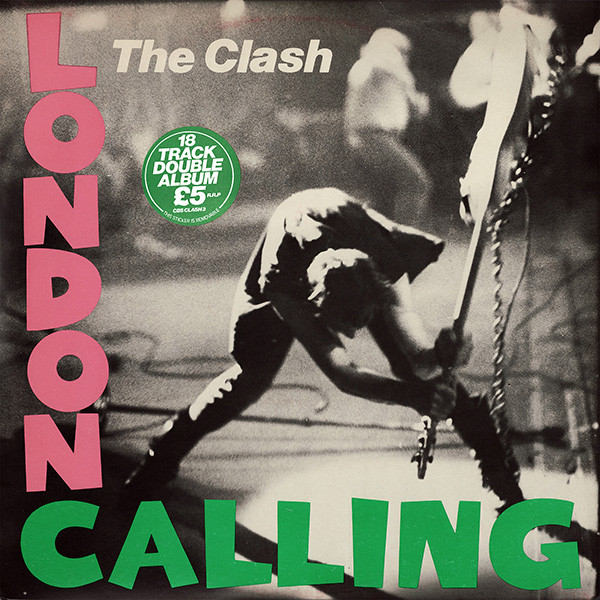

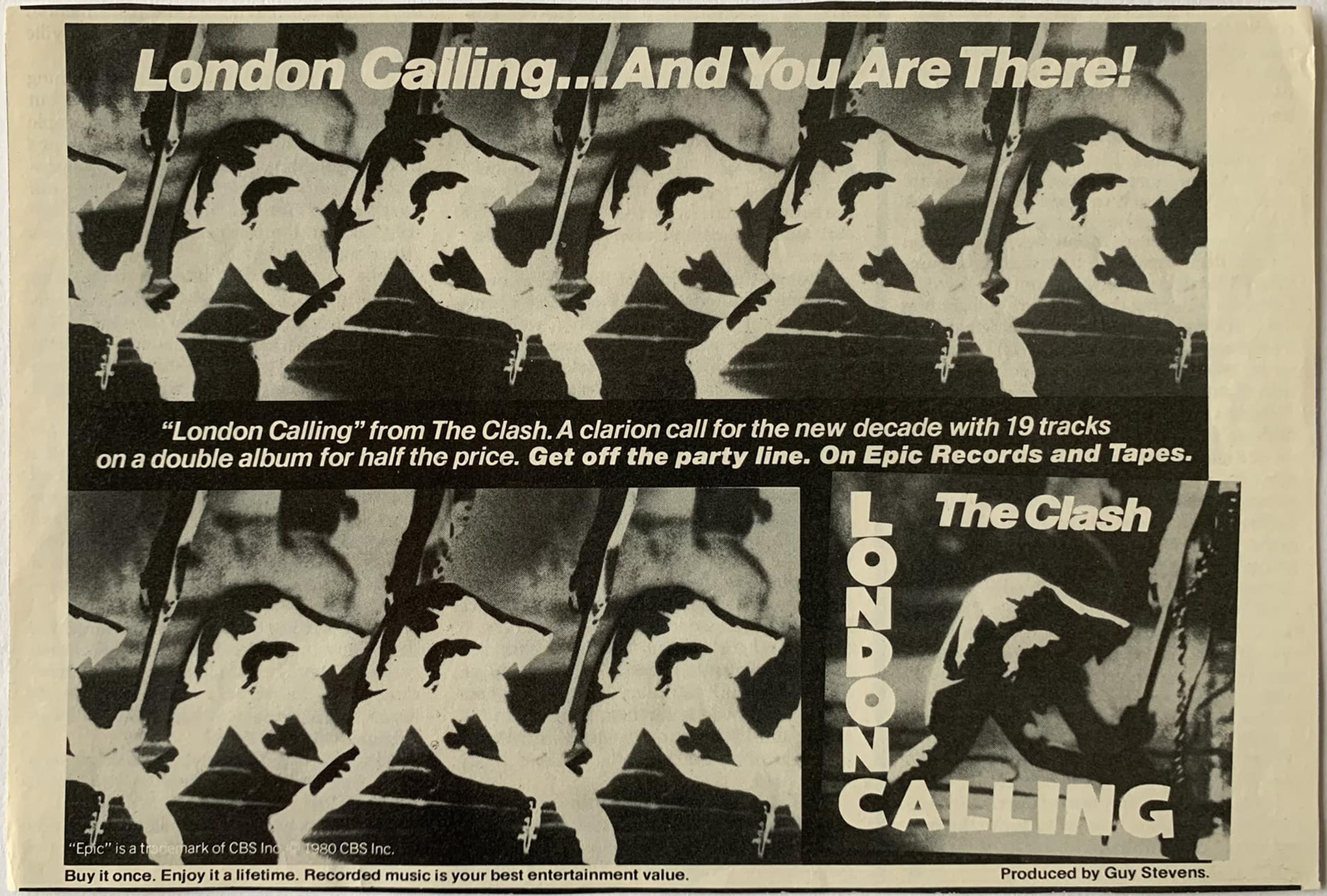


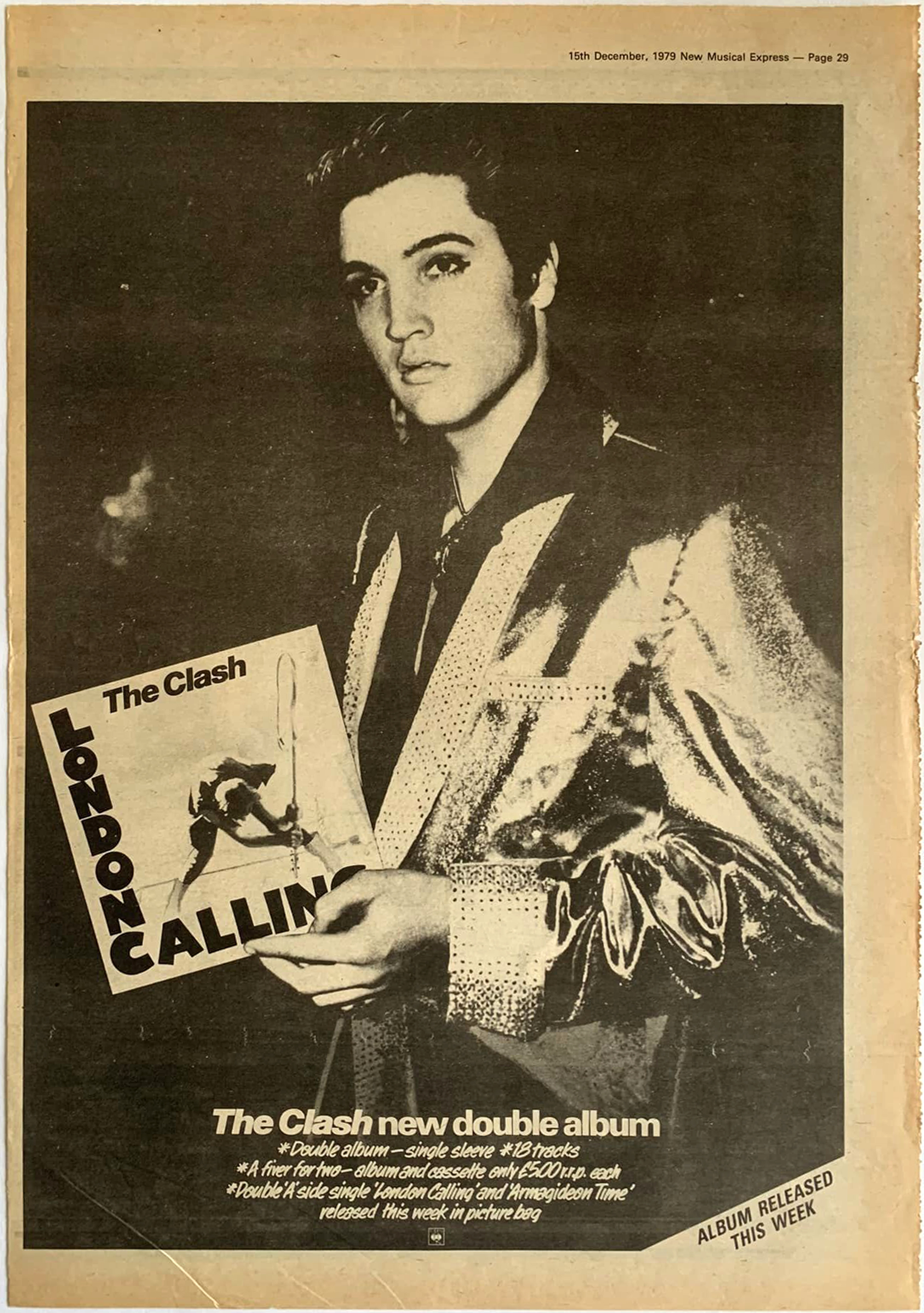
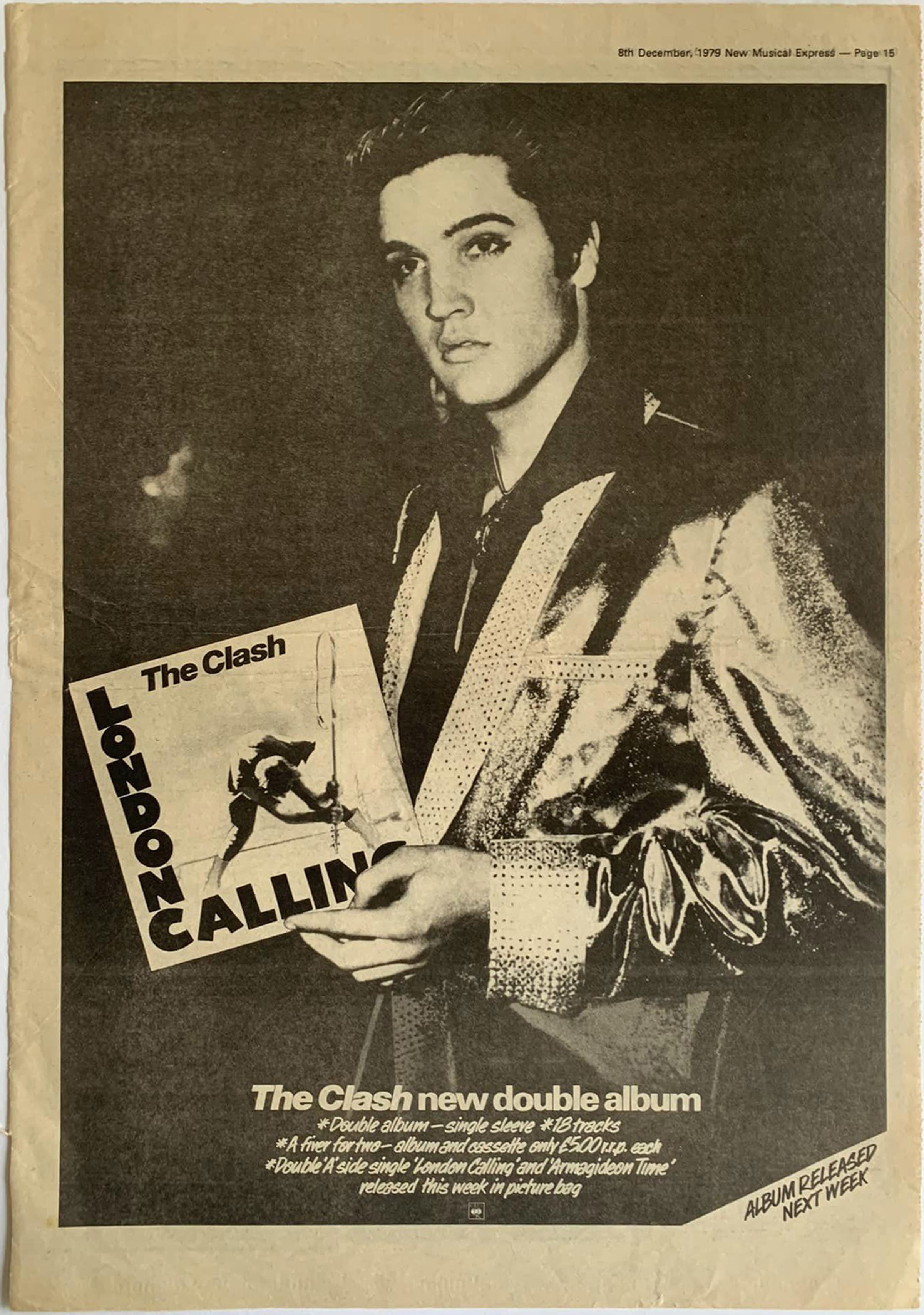
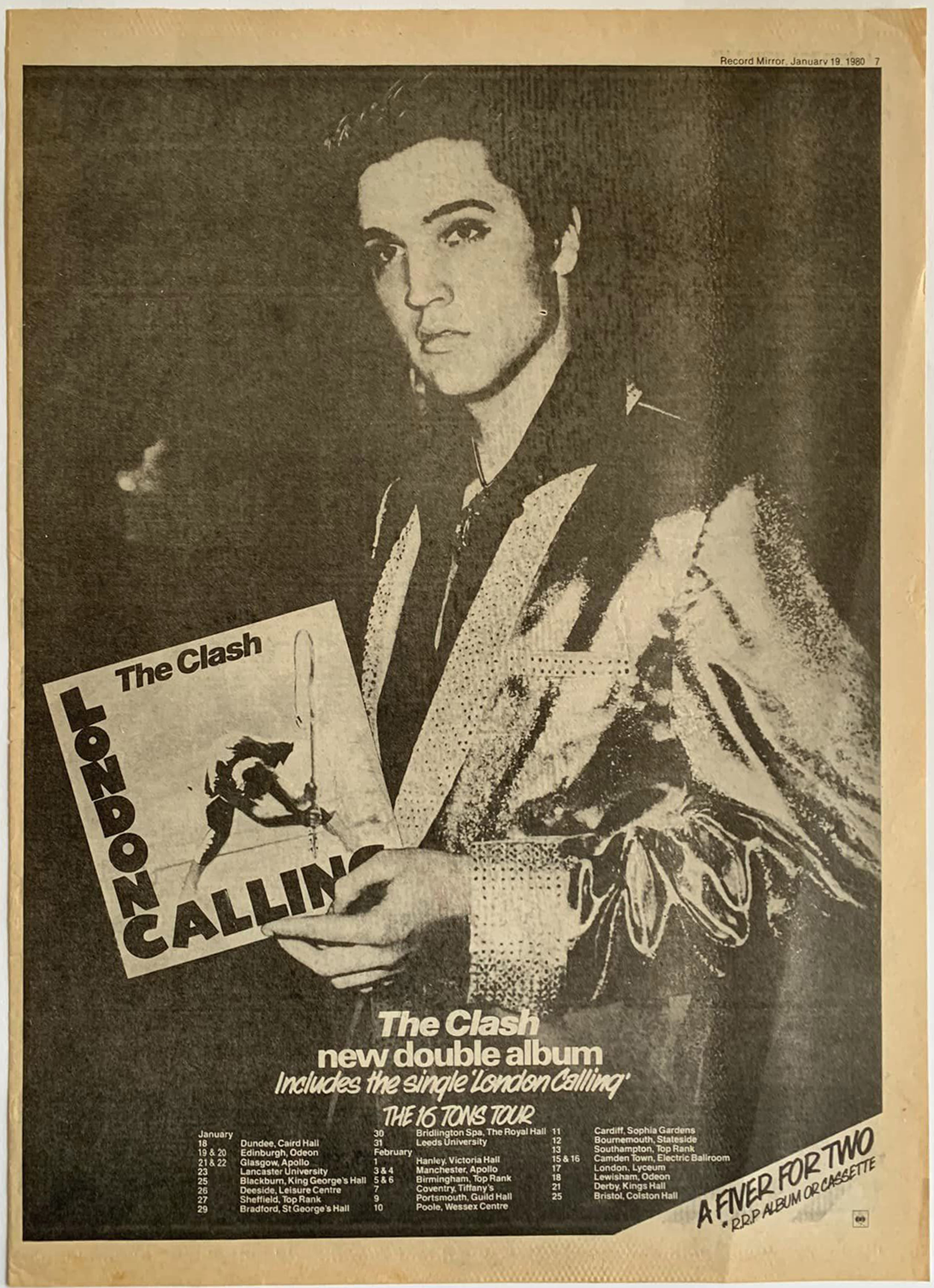
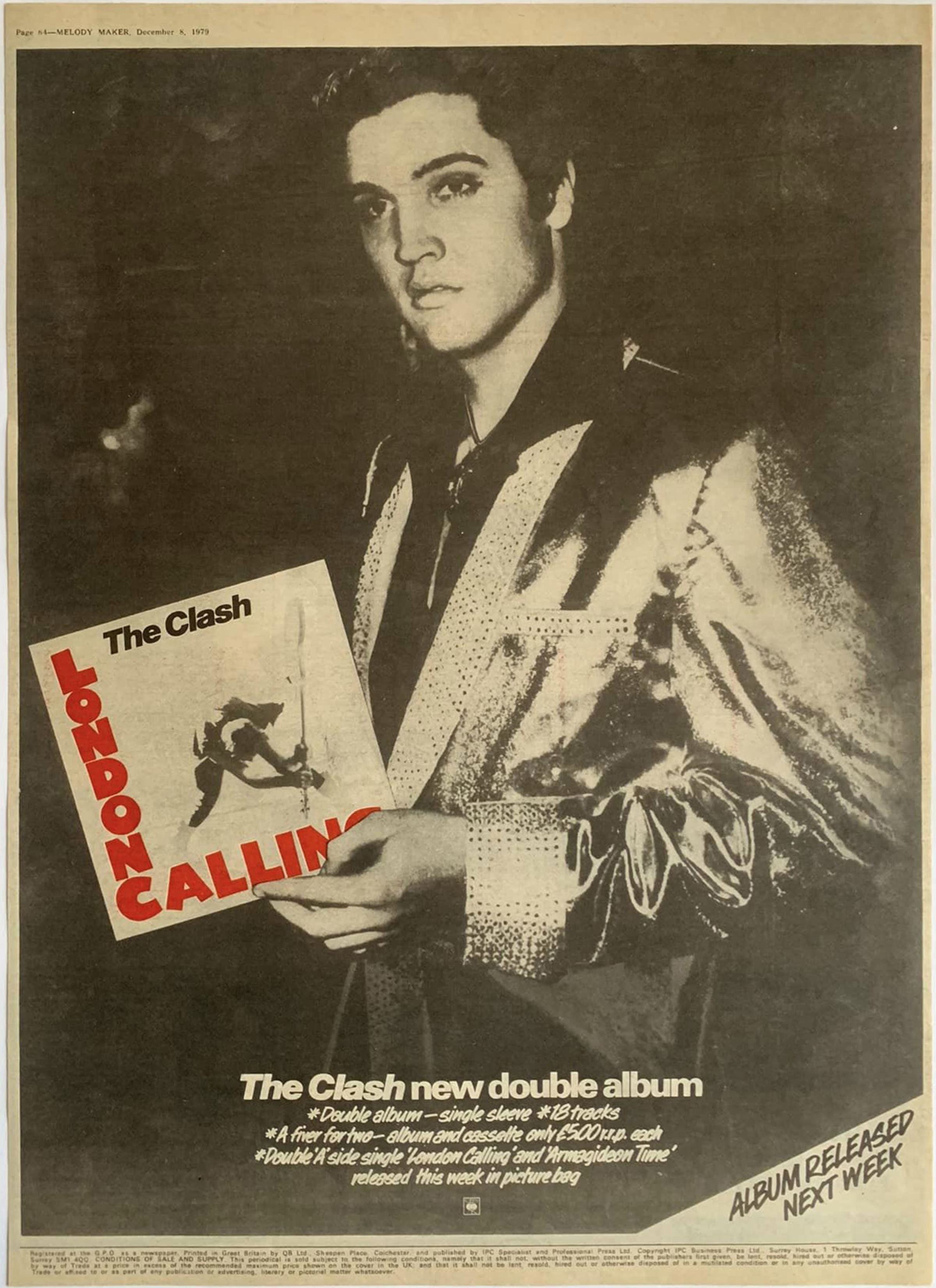
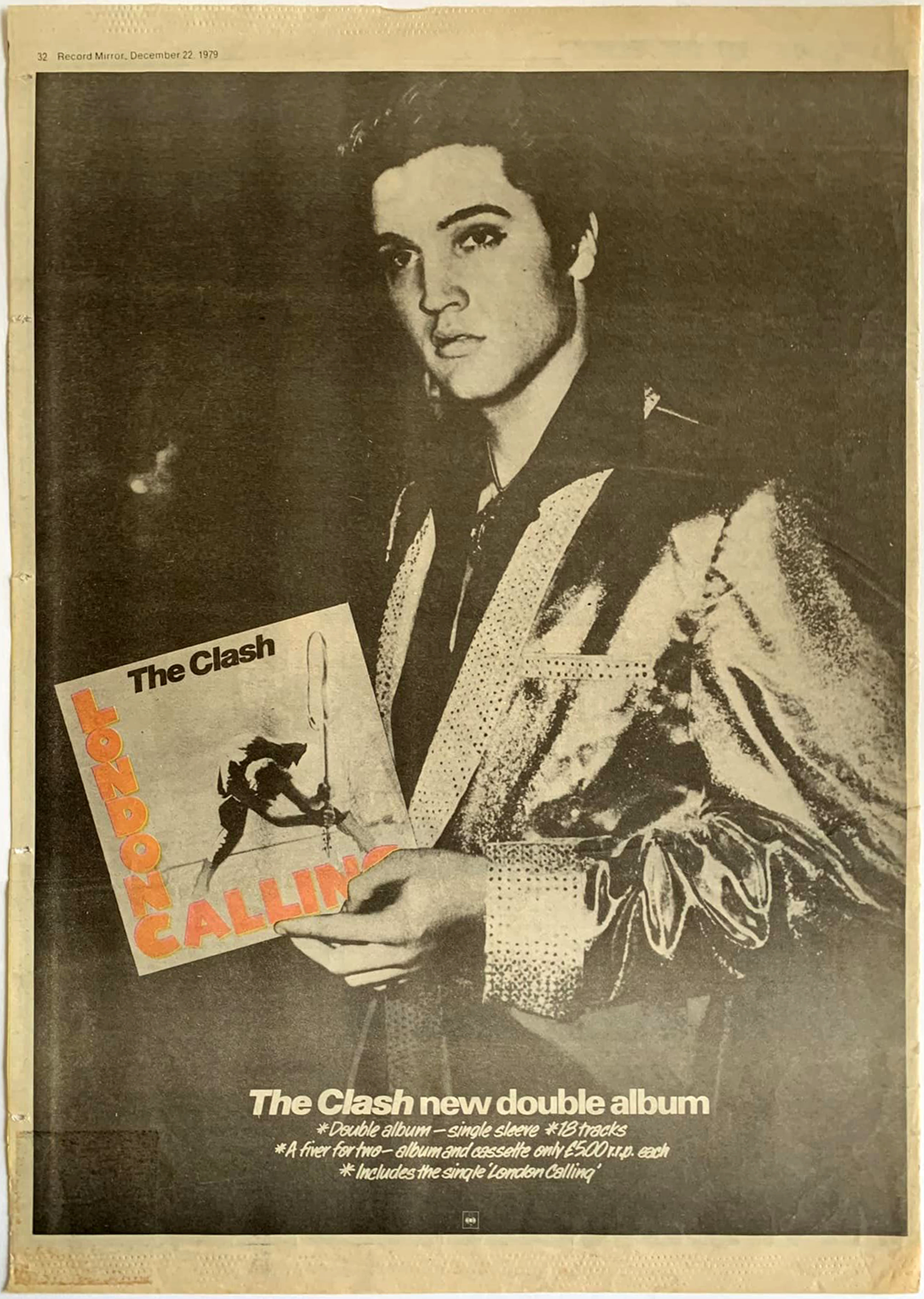


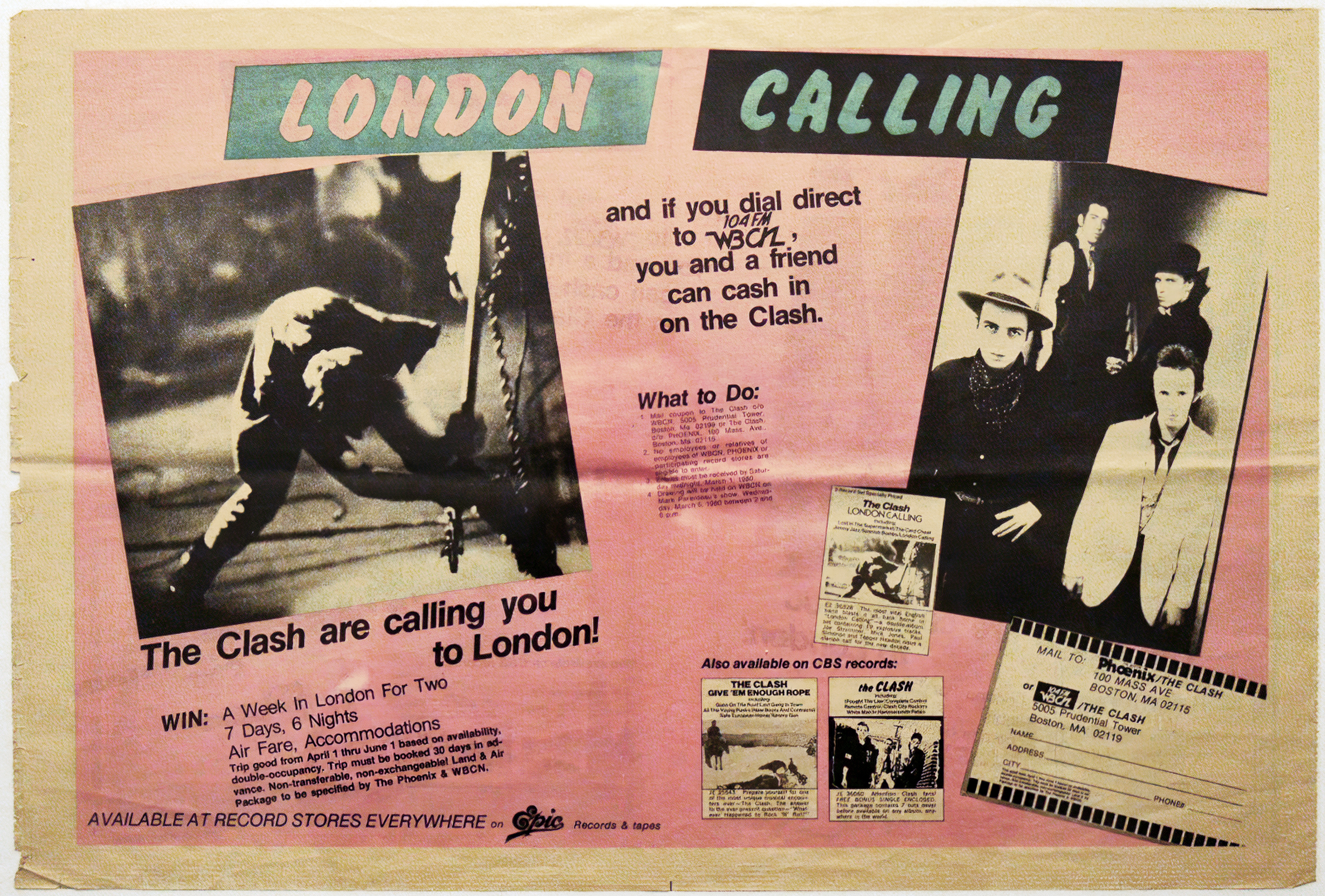
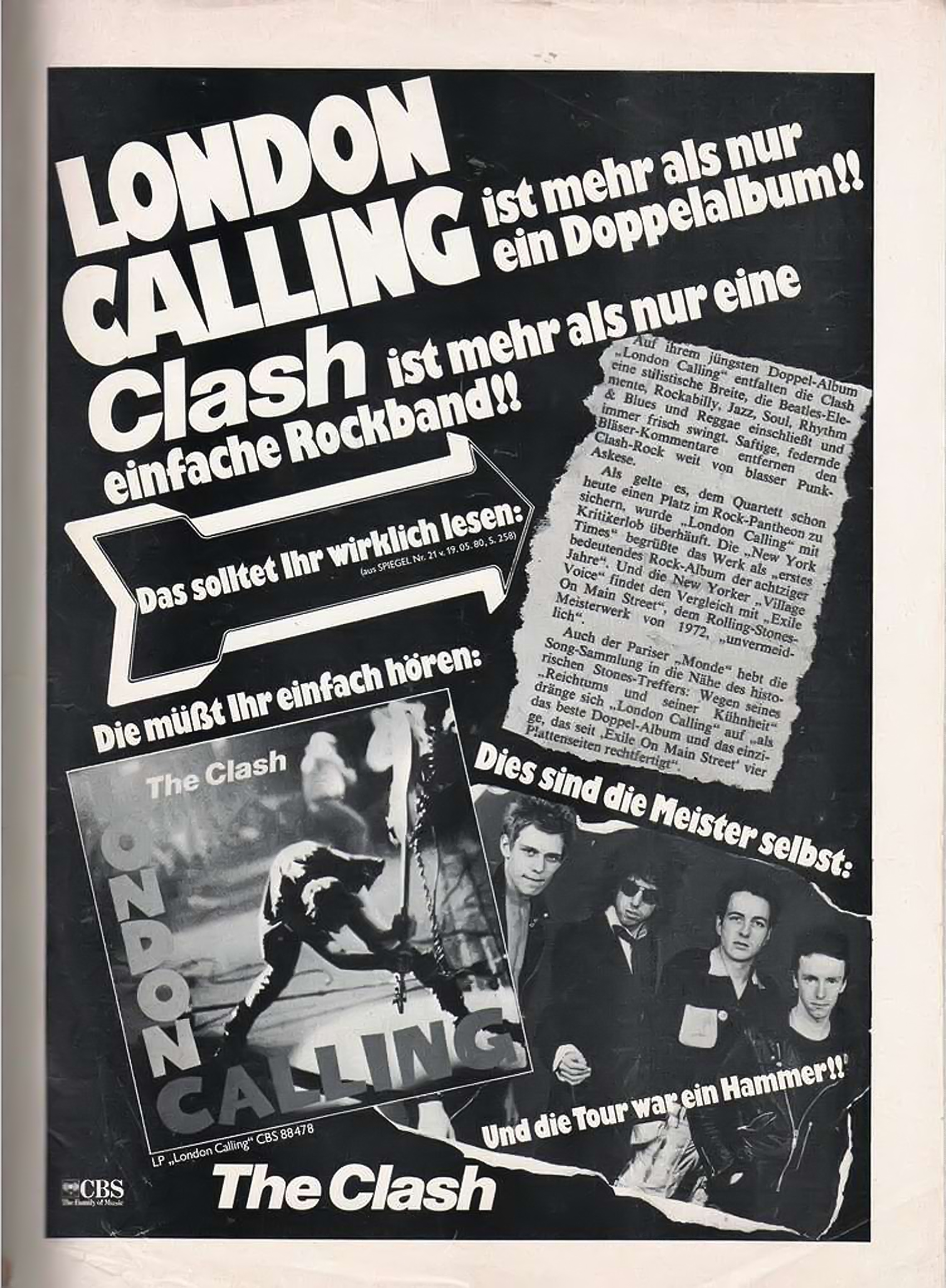

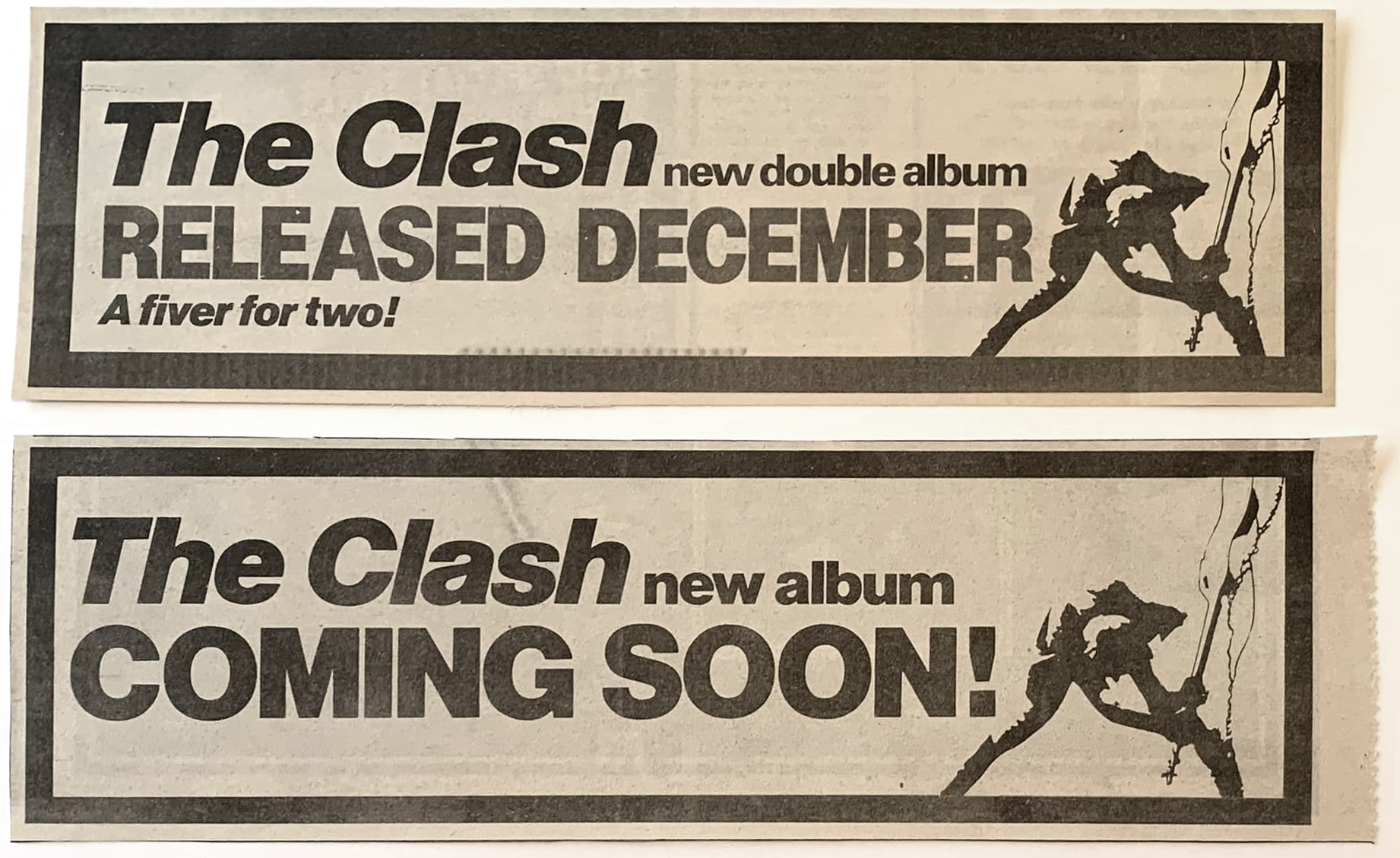




.jpg)





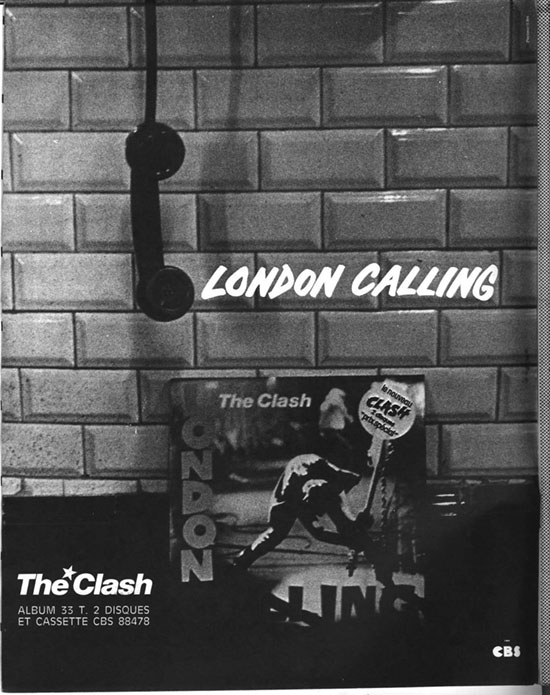









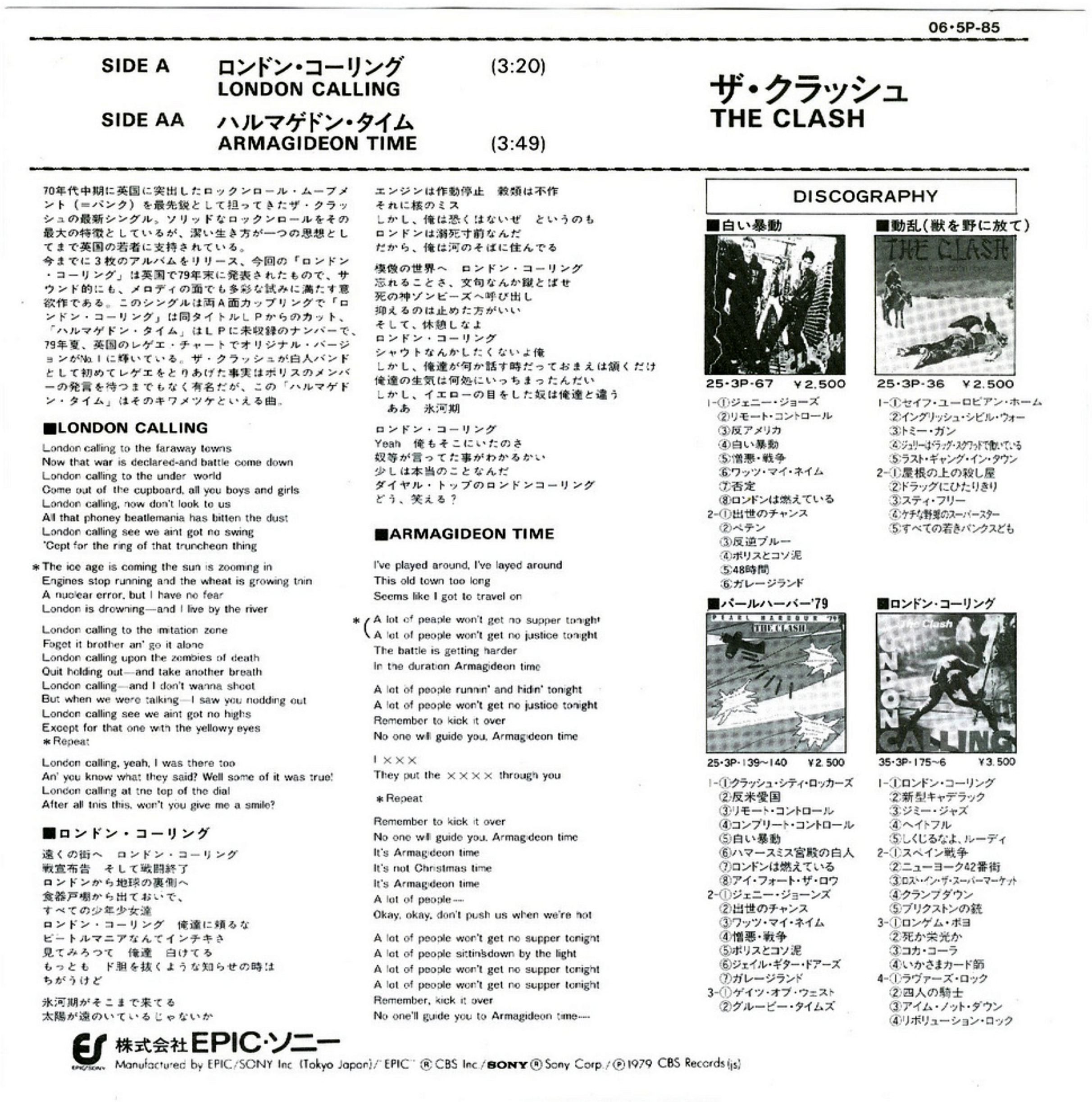
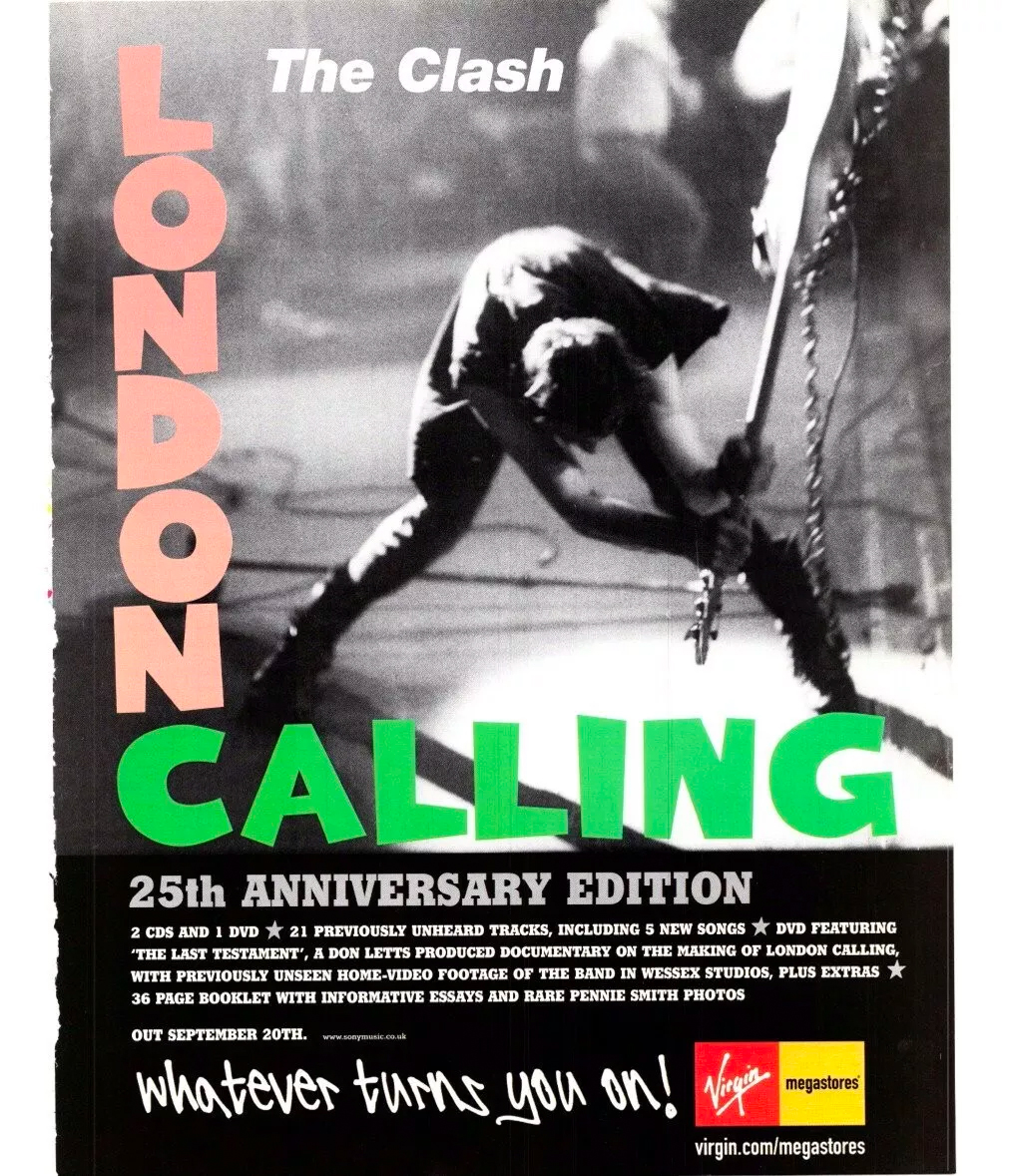
.jpg)









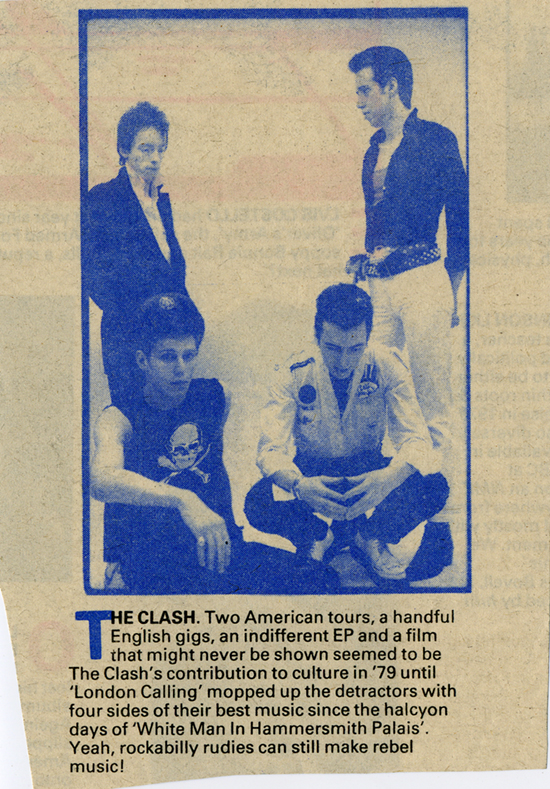



/80%2001%2009%20The%20Guardian,%20London,%20Greater%20London,%20England%20(LC%20Review)%20300%20copy.jpg)

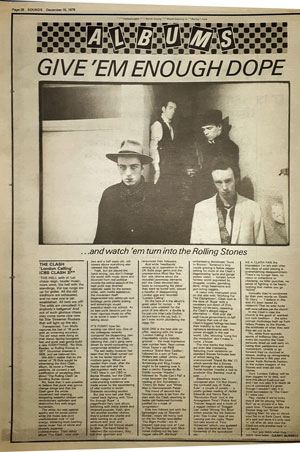
/Liverpool-Echo---Friday-07-December-1979-550.jpg)



 1979 12 22
1979 12 22 29 Jan 1980
29 Jan 1980


 No96 Xmas
No96 Xmas





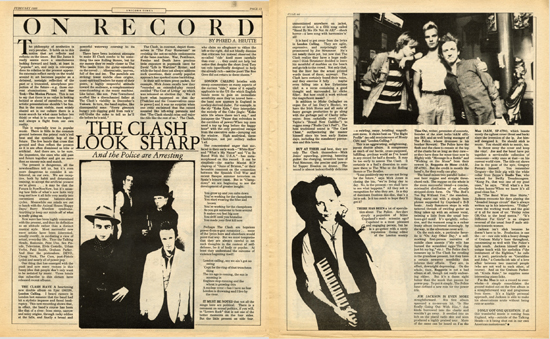
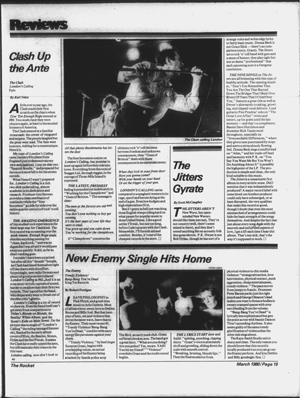 March 1980
March 1980/80%2000%2000%20Rolling%20Stone%20LC%20review%20(1989)%20partial.jpg)

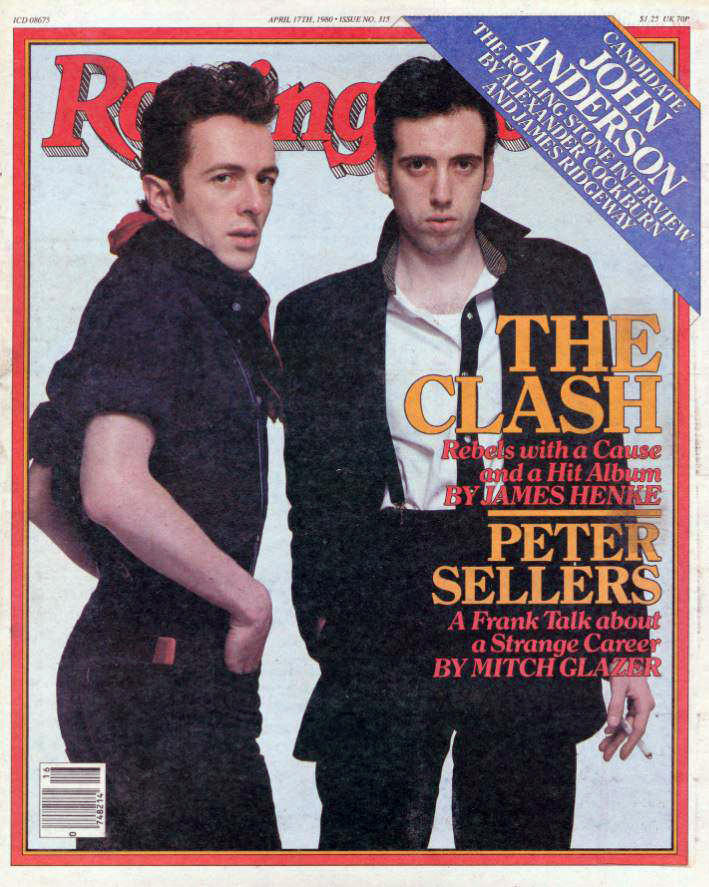
/North-East-Bay-Independent-and-Gazette-Sun-Mar-2-1980-WEB.jpg)
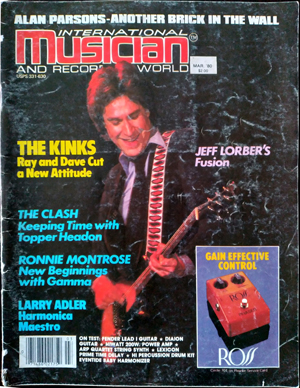
/The-Lexington-Herald-Sun-Apr-6-1980-WEB-550.jpg)
/Messenger-Press-Thu-Apr-17-1980-Web-550.jpg)







/The-Whig-Standard-Sat-Mar-29-1980-Web-550.jpg)
/The-Albuquerque-Tribune-Wed-Mar-26-1980-Web-550.jpg)
/The%20Courier%20News%20Sat%20Mar%2022%201980%20550.jpg)
/Courier%20Post%20Thu%20Mar%2020%201980%20WEB%20550.jpg)
/Daily-News-Sun-Mar-16-1980-550.jpg)
/Daily-Record-Fri-Mar-14-1980-550.jpg)
/The-Windsor-Star-Wed-Mar-12-1980-550.jpg)
/The-Burlington-Free-Press-Sun-Mar-9-1980-550.jpg)
/The-Vancouver-Sun-Fri-Mar-7-1980-550.jpg)
/The-Ottawa-Citizen-Fri-Mar-7-1980-550.jpg)
/Fort-Lauderdale-News-Fri-Mar-7-1980-550.jpg)
/Valley-Advocate-Springfield-Wed-Mar-5-1980-550.jpg)
/North-East-Bay-Independent-and-Gazette-Wed-Mar-5-1980-550.jpg)
/The-San-Francisco-Examiner-Mon-Mar-3-1980-550.jpg)
/The-Province-Sun-Mar-2-1980-550.jpg)
/The-News-and-Observer-Sun-Mar-2-1980-550.jpg)
/The-Dispatch-Sun-Mar-2-1980-WEB.jpg)
/Clarion-Ledger-Sun-Mar-2-1980-WEB.jpg)
/The-Sentinel-Sat-Mar-1-1980-550.jpg)